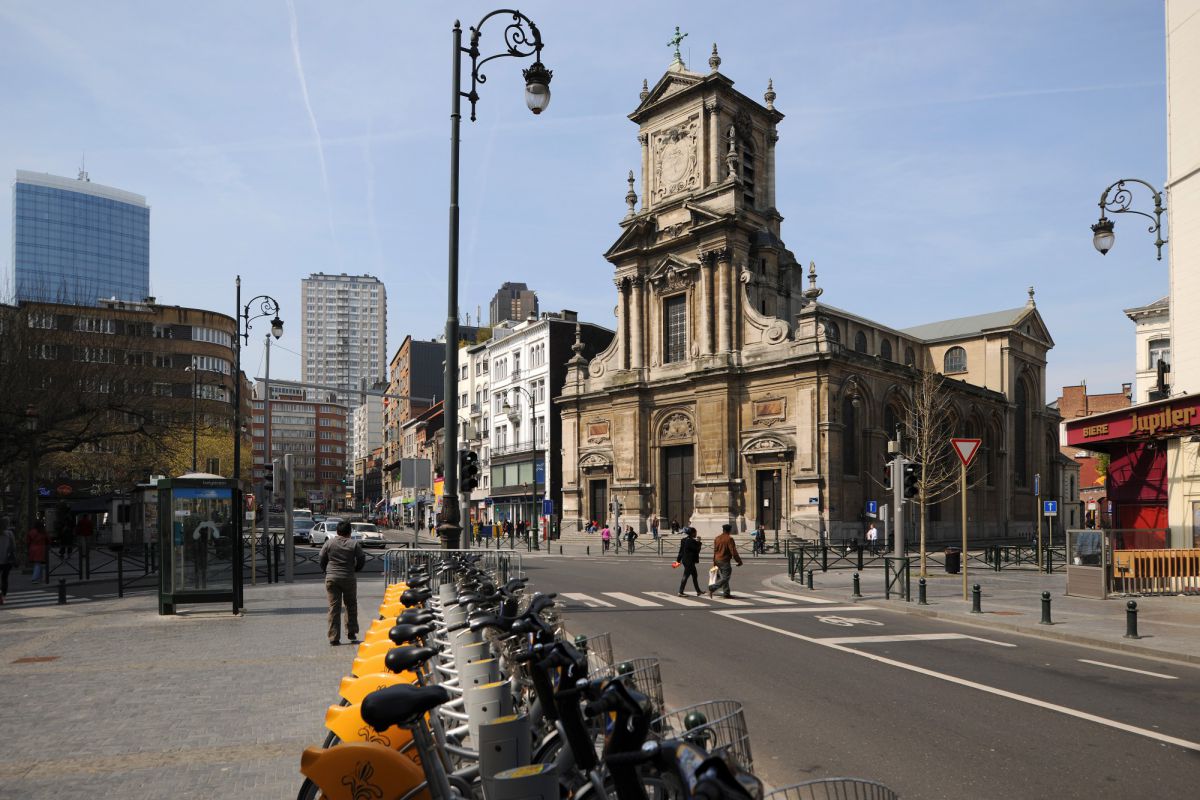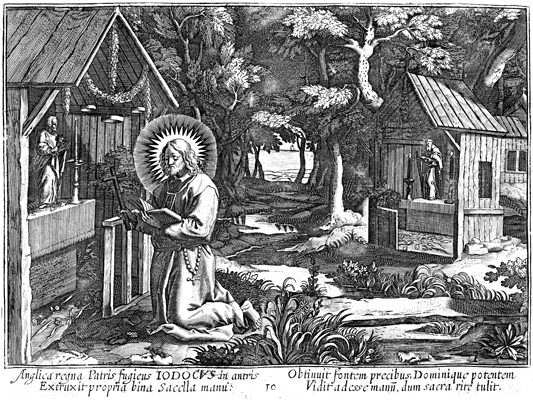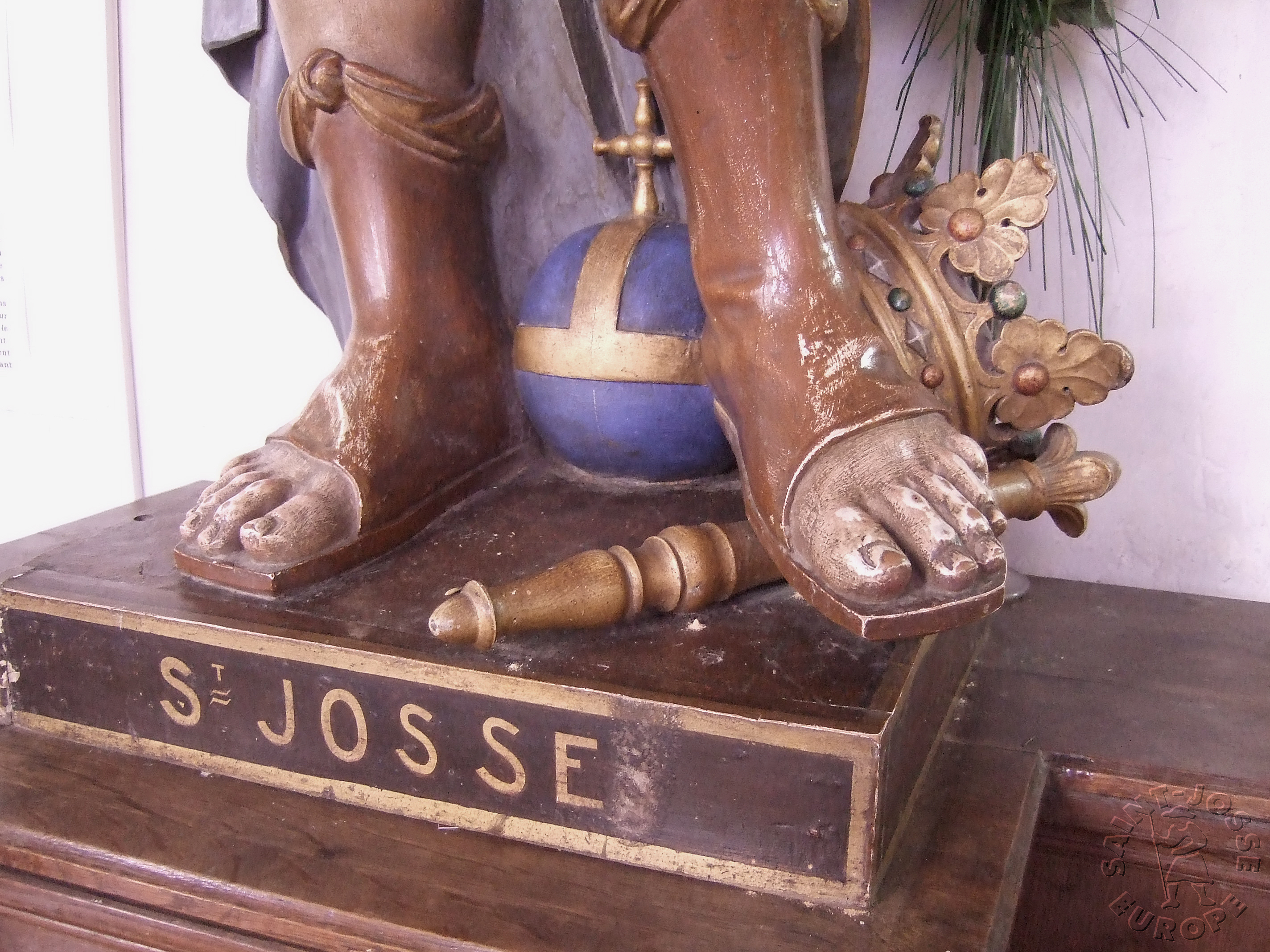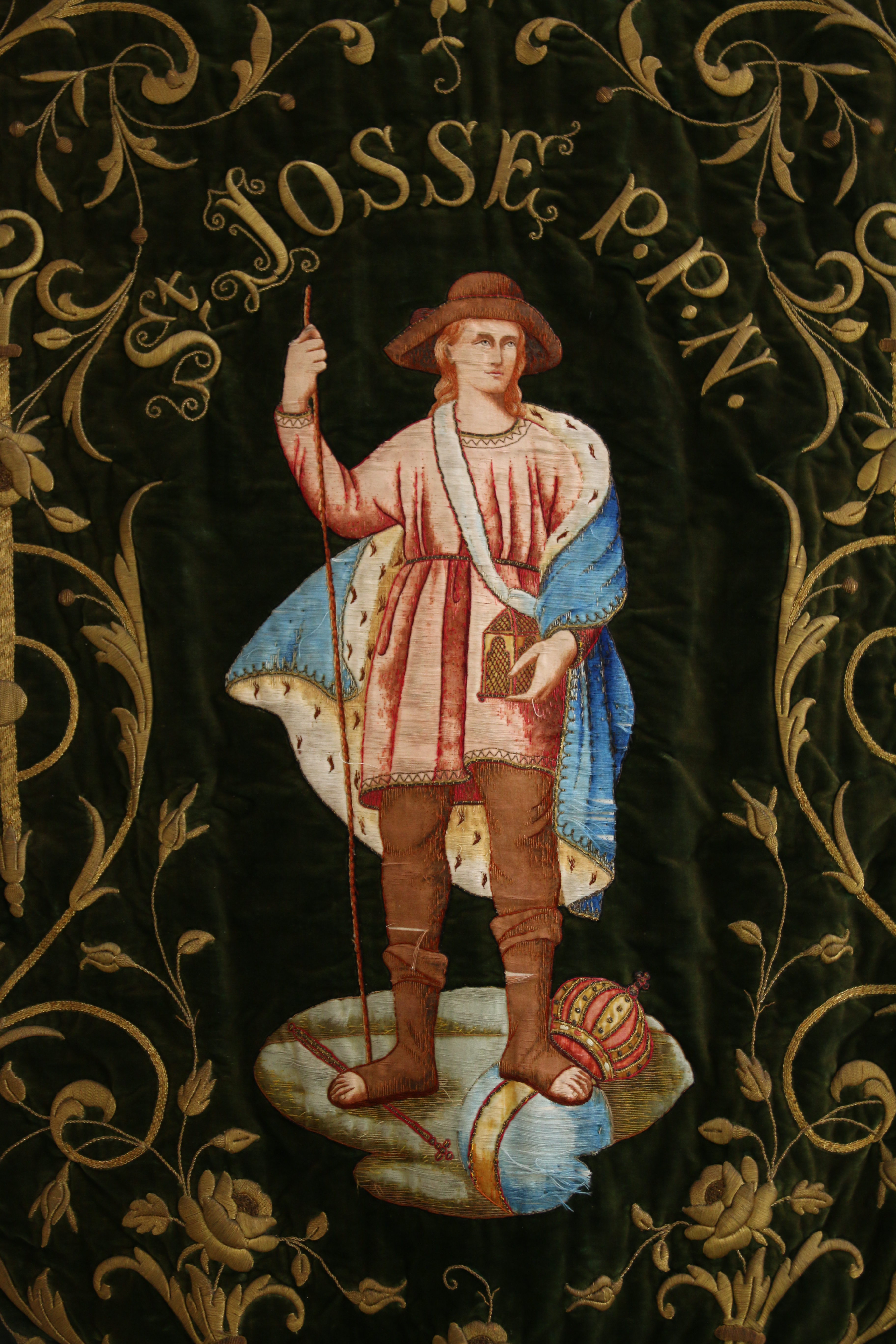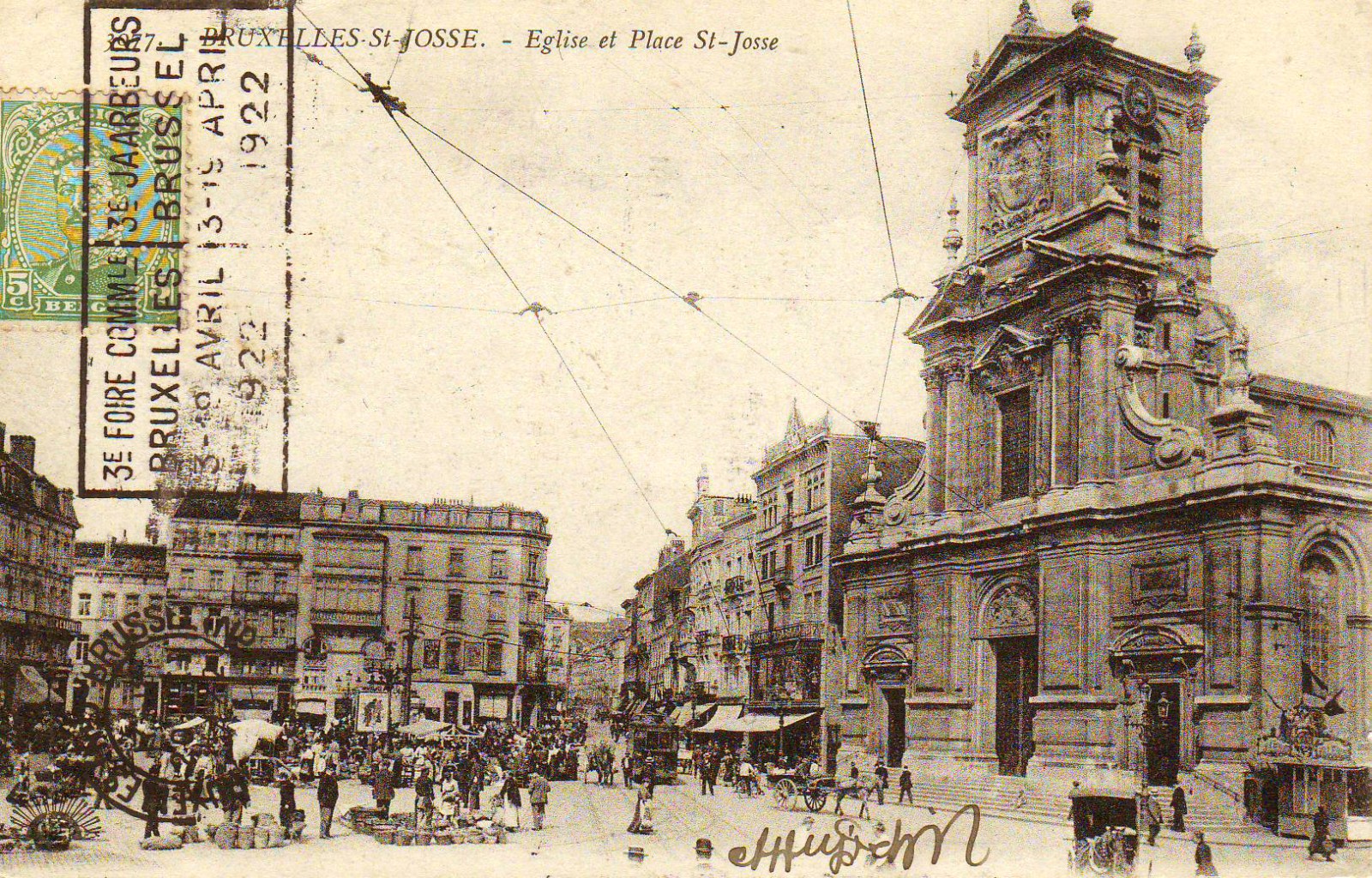The Roman Empire was in ruins and Britons fled across the sea from the English-Saxons to settle in Armorica in Gaul, near present day Brest of France. They formed themselves into a little state on the coast, called Kingdom of Brittany, receiving the laws of the French.
Jodoc was born in the year 600 as the son of Juthael, who became King of Brittany about the year 630. His sons were educated and raised in the Monastery of Lammamiont. His eldest son Judicael, who became a Saint, renounced the crown as prince, and sought a greater relationship with God by joining the monastery of Saint Meen, in the diocese of Saint Malo. He had offered his crown to his younger brother, Jodoc.
Jodoc (Josse in French) had the same inclinations as his older brother and therefore went back to the Monastery in which he was raised and for 8 days prayed day and night for divine direction. He ended the deliberation by renouncing his inheritance and receiving the 1st clerical steps by the Bishop of Avranches. He then joined a company of 11 pilgrims to Rome in 636. They first went to Paris and then Picardy, where Jodoc was sought out by Haymo, the Duke of Ponchieu. The Duke had heard of his renouncing of the crown and good works. He was requested to prevail over the Duke’s remote estate, after Jodoc became a priest, and he served the Duke’s Chapel for 7 years.
Jodoc retired from the role, seeking to praise and glorify the Lord in solitude at a monastery with companions. The Duke understood and built them a chapel along with monastic cells, in which the hermits lived. For 8 years they farmed the land, lived off scraps, and gave much of their food and works to the poor in the region.
Seeking to expand those he could assist, Jodoc moved to Runiac, now called Villers-Saint-Josse, where he built a chapel in honor of Saint Martin with additional assistance from the Duke. His monastic group continued in the same manner of life for 13 years. After Jodoc was bit by a venomous adder snake, he developed complications that affected him the rest of his life and they took it as a sign that their accommodations were inadequate. The Duke again continued his protection over them and assisted in the construction of another hermitage and 2 chapels in honor of Saints Peter and Paul.
Him and his companions made a penitential pilgrimage to Rome in 665, and upon their return, they met the Duke along the road. He guided them to their enlarged hermitage and newly constructed adorned chapel in memory of Saint Martin. He had expanded the estate as they gathered more members and increased their assistance to the poor even more.
Several years later, Jodoc died from what is believed to be conditions of the snake bite on December 13, 669. The term “mal Saint-Josse” was used to describe an illness resulting from a snakebite. Numerous miracles were reported during his life and after his death.
Winoc and Arno, 2 nephews of Jodoc, inherited authority over the hermitage, which became a famous monastery, 1st bestowed by Charlemagne. It is called Saint Josse-sur-mer.
His veneration spread throughout the Western countries of Europe and his name became popular for both men and women with a number of chapels and churches dedicated to him.
The abbey was closed in 1772 but the church remains.
His feast day is December 13.
For God’s Glory.
Saint-Josse-sur-mer, the chapel built by the Duke, which still stands today:
